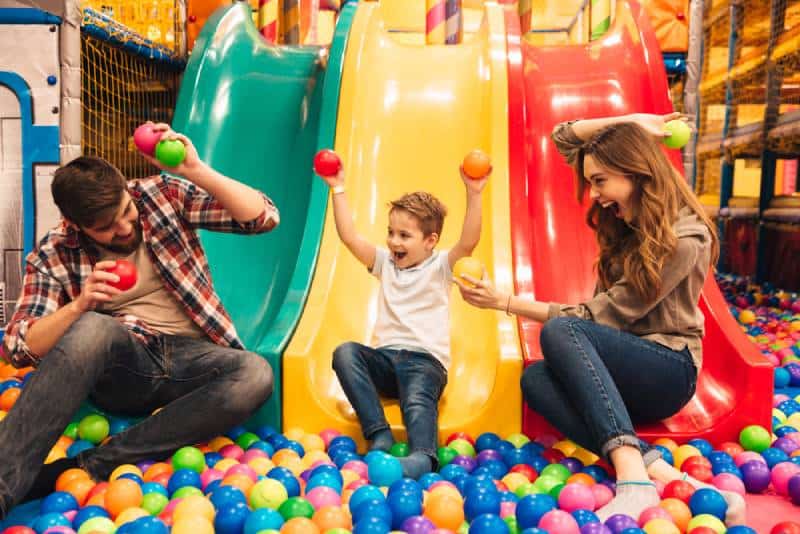When it comes to comparing the two archetypes of parenting, everyone always knows how it was when they were kids – back in the old days – and just how strict things were.
But, nobody really knows how to define modern parenting properly. What is it really?
Modern parenting is a more involved style of parenting that requires a lot more attention to child care from the parent’s side and one that focuses on the child’s well-being and overall mental health.
A style that looks to nurture the child’s talents while still enforcing some rules in a healthy way, while also taking the child’s own views into consideration.
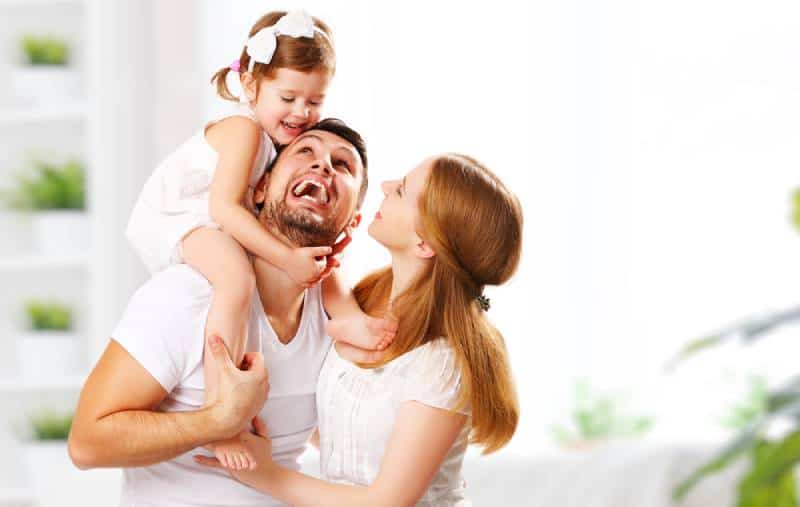
It takes a lot more effort on the parent’s behalf to actually maintain this style and keep it from evolving into something different.
The old style of parenting is a tad stricter, focusing more on tradition and limitations, and enforcing a lot of rules through heavy discipline, akin to an army boot camp.
It’s a style where the parent is always right and a belief that your own children’s opinions on the matter are a moot point.
It’s a rather cruel and archaic style if you ask me, but one that is still rather prevalent in the families of the United States – and the rest of the world too.
But which one is better?
Old Versus Modern
If we’re taking a look at these two from the perspective of the four existing parenting styles, the main category that modern parenting would fall under would be authoritative parenting, while the old parenting method would be authoritarian, with their extremes spilling over into permissive (or indulgent) and uninvolved, respectfully.
Parents today were usually raised on the older, more archaic method of parenting and some will pick either style depending on how they were raised, although more and more are choosing a more modern style of parenting.
At least at first – until most of them sadly dip into one of the more extreme styles.
Modern parenting
When someone treads the modern parenting route, often they tend to misunderstand the part of being involved in their kids’ lives, and end up either smothering them by being too involved and codependent, or just not employing enough discipline.
This leads to it turning into a rather permissive parenting style, which means your kids are less likely to learn any discipline.
This usually happens because one or both of the parents were raised in a rather strict environment when they were young children and they vowed not to do the same for theirs, instead going to the other extreme and allowing theirs everything.
This ends up creating children who are rather spoiled and unable to deal with a scenario where they’re denied something.
This in turn can often lead to tantrums and the parents becoming slaves to the child in a sense, where the child is the one in control rather than the parents.
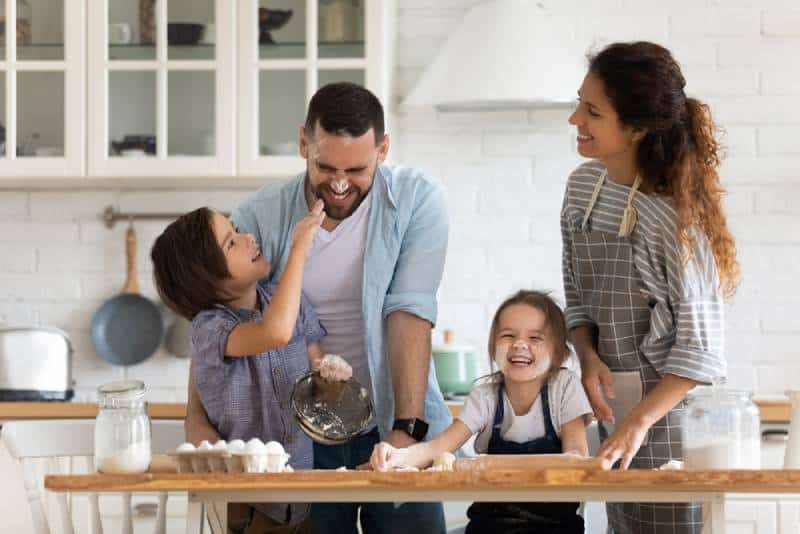
You can see how that’s bad, and, more often than not, people will unknowingly slip into this state and not realize it until it’s too late.
I myself was guilty of being a more permissive parent with my daughter initially, always letting her do whatever she wanted whenever she wanted because I was an inexperienced working mom, trying to juggle family and career at the same time.
I figured that if I allowed her everything I would get more time to myself.
Thankfully, a few of my friends pointed out how dangerous parenting like that really was and what the right method of going about it would be – so I managed to course correct in time.
But what about the old and archaic parenting method? Surely it’s bad, right?
Well, maybe when looking at it from a certain perspective. That’s what I thought myself initially, but it does have some merits as well.
Old parenting style
While the old style of parenting means your kid gets little say in the matter, it is still excellent for developing a strong sense of discipline and work ethic in a child.
The downside is that said child is more likely to either become timid in situations where they should stand up for themselves or be unable to develop proper social skills because they lack a sense of self and their own character.
It tends to get under their skin a lot and affect their self-esteem levels.
Now, it doesn’t necessarily have to be this way, many kids ended up turning out just fine being raised on this parenting method.
We wouldn’t be here otherwise, right? The archaic and authoritarian style of parenting still values the child’s needs despite being harsh in the way discipline is handed out.
The big problem about the old style of parenting is that it has a very high chance to turn into an uninvolved parenting style.
One where the child’s needs are so unmet that it just seems like the parents do not care.
Usually that’s not the case – a parent often does care for their child, but they might be overwhelmed with work to the point that they can’t be there for their kids, leading to this awful situation.

When it gets to this point, the kids don’t really have a solid role model to rely on in their lives and end up being less motivated in their endeavors, a lot unhappier, and they tend to perform a lot worse in their daily tasks.
And it’s not just the old parenting style that’s at risk here.
Even modern parenting can devolve into this dismissive and uninvolved style if the parent chooses to take on multiple jobs to support the family and their kids never really get to see them.
The other main cause tends to be parents who have severe physical and mental health issues, or issues with some sort of addiction to the point where they simply cannot find enough time to devote to their kids because they’re occupied fixing themselves.
But which one is better?
Well, the easiest way to determine that is by going through the motions of parenting throughout the entire cycle of your children’s lives, personal experience and all.
So let’s begin.
The Old And New Style Throughout Life
Childbirth
The beginning always starts off the same.
Expectant mothers and fathers are always excited to see their little ones emerge from their mother’s womb and into the light and are eager to welcome them into their family with loving arms.
There’s very little difference here as the newborn is too young at the time to even understand the parents even if they’re trying to talk to them, responding to their sense of touch and their basic urges over anything.
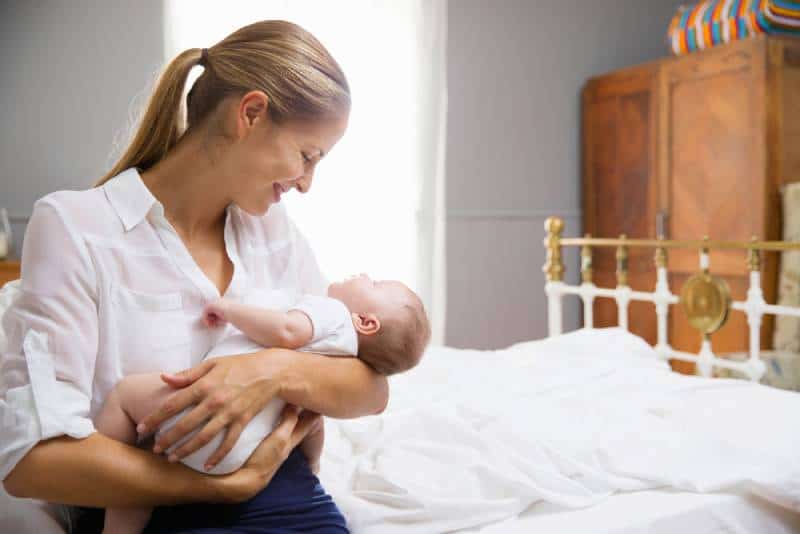
Being fed at the mother’s breast or staying next to her is of paramount importance to them at that age and that’s something a parent will do regardless of parenting style, since that too is a basic instinct.
The real challenge starts when the mom and the child are out of the hospital and back home.
It’s when family life becomes relevant and starts to have an effect. It’s at that time when one starts noticing more clearly the divergences in the different paths the two styles take.
RELATED: 9 Best Ways To Improve An Unhappy Marriage After Baby
Toddlerhood
Here’s where things start to get interesting – when the child no longer needs to be held in the parent’s arms and when they get to start exploring a bit.
When they get to start playing with their toys and paying attention to tv or tablet screens, or when they start interacting with their toys and surroundings.
Old parenting style
Now, with the old style of parenting, this is where the discipline starts.
If the little one isn’t eating their baby formula or their solid foods (depending on the age), they lose out on their playtime or screentime privileges.
No cartoons, no toys, no nothing.
This often leads to them throwing a tantrum and/or crying, but in this form of parenting, the parent is the one who is right – or at least they think they are– and thus this does not impact them.
They stand firmly by their decision no matter how hard it may be at times and, in time, the child learns what the necessary steps are in order to get said privileges back.
The way older parenting style parents discipline their children also tends to involve bouts of spanking or similar.
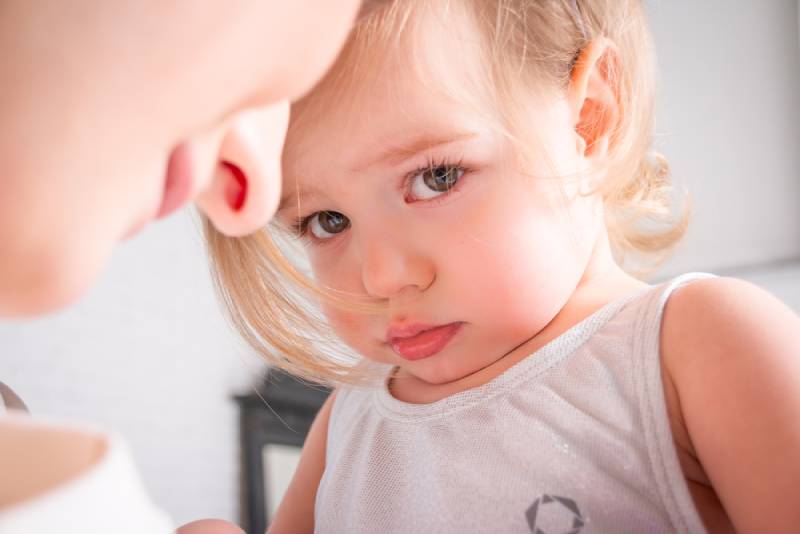
You know, what you usually find as the stereotype on last centuries’ TV shows for strict mothers and fathers.
Not the healthiest way of going about it, leading to a whole slough of problems down the line and one of the main reasons why I tend to disagree with the methods this parenting style involves.
Again, maybe not the best approach, but it’s still a good one, despite me not agreeing with it.
Rules are established quite early and are strictly enforced, allowing the parents to take control at an early age and cement themselves as the de facto role model and law in the family hierarchy.
Modern parenting
But what about modern parenting? Well, the modern style differs in the fact that they take a more relaxed approach to the whole thing.
They set themselves above the child similarly to the older style, but they don’t hold all the power in their hands.
They leave a healthy portion of it in the child’s hands to encourage them to explore and develop their sense of self.
This is because they think it’s important for their little one to have freedom in their own development – looser screws on the control seal, as it were.
When it comes to discipline, it’s still there, but instead of saying their privileges are revoked, modern parents let their kids earn their privileges by doing positive things.
It’s a different spin on how the more authoritarian old style does it, but ends up being somewhat similar in this area.
So, instead of giving the child screen time privileges to begin with, they’ll start off by not letting them have any until they’ve learned to eat their veggies/food and then giving it as a reward for a certain amount of time instead of doling it out like a punishment.
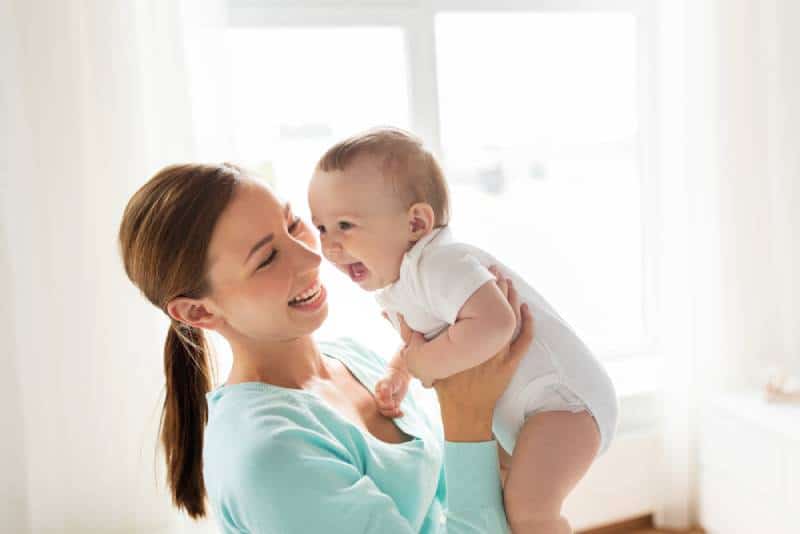
This way, they get to control the bad influence that too much of something may inflict upon the toddler (too much screen time in this case) without making it sound bad for not having it around in the first place.
Think of it as some sort of marketing method in a sense – giving them a sample for doing good and motivating them to do the same to earn it back.
The difference is that not everything is restricted.
Kids will still get to enjoy regular playtime and visits to their grandma and grandpa, but the more optional things will be excluded and treated as a special treat for being good, simple as that.
And when it comes to disciplining the child when they do something wrong, the furthest modern parents are going to go is a stern talk with their child, but they’ll never raise a hand against them.
This is because recent studies have shown that all physical violence does is cause more physical violence down the line, turning your kids into potential bullies when they get older.
Young kids (Age 4-12)
This is the period when things start to diverge and clear lines in the sand are drawn by both sides.
Why? Because the start of this period is when kids usually start going to kindergarten or preschool.
At least it’s the most ideal period, now that the parent’s have spent a few years playing the main actor in their child’s life.
Old parenting style
In this case, the older style parents are going to leave their child at kindergarten while they head out to work, but not before choosing one that employs similar methods to those that they’ve utilized thus far.
This period of early childhood is also the riskiest when it comes to this older parenting style, as the kids of these parents could start showing their self-esteem issues with their new friends if their parents were too strict.
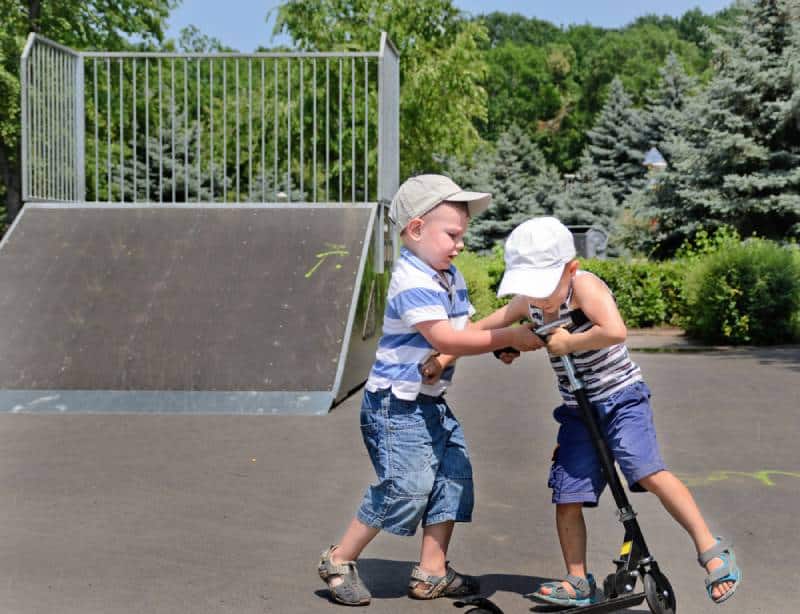
Or, it could go a completely different route and they might just end up being the bully on the playground, pulling people by the hair or ruining sandcastles because they see other kids not behaving in the way they are made to at home.
They try to imitate how their parents react to them doing similar things and project it onto other kids, leading to a handful of parent-teacher conferences – something that will become the norm if things stay the same.
Kids are at their most impressionable at this stage as well so this could be the last point where the parents will get the chance to set the record straight or risk the child retaining a number of nasty habits that’ll follow them through the rest of their life.
It’s still fixable later down the line, but it becomes progressively more difficult as their kids grow into young adults and into parents themselves, when no amount of parenting advice will help them.
Modern parenting
Now, modern parents can take a similar approach as far as kindergarten goes if both parents are working.
It’s an unavoidable fact that most American parents and households in general tend to live from one paycheck to another, sadly forced to limit the time they have with their kids and having to rely on others to keep their kids safe.
That’s not to say they don’t get the necessary bonding time with them, but it becomes a lot more difficult when maternal leave expires.
Luckily for them, their child will reflect what they learned at home as well, but in their case they won’t be as aggressive or closed off as those raised through an archaic style of parenting.
There’s still a risk of the latter depending on the way their toddler years were handled, but it’s less common.

What usually ends up happening, though, is that their kids have a lot more confidence in themselves and end up making a lot of new friends, unafraid of approaching strangers their age and greeting them warmly, playing with them, and sharing their toys.
But, kindergarten isn’t the only solution to the dilemma.
Some parents manage their work around their kids so that at least one parent is always present around the household and around their child.
This is usually done by them taking separate shifts.
This does mean that parents see a lot less of each other now, but there’s always some risk or detriment to any strategy.
It might cause friction in the marriage or a great sense of longing for the partner, but luckily technology has advanced enough to let us see our significant other from anywhere in the world, so it’s not as bad as it used to be.
The benefits of this are that the parents get to save money by not paying for kindergarten and remain a big part of their children’s life by continuing to be their main role model.
Plus, it leaves the kids in a familiar and more comfortable setting.
The other alternative, which is the one I’m doing, though not many people may have the privilege to, is to be a stay at home mother or father.
This speaks for itself, one person is out being the breadwinner of the family while the other stays at home full time to take care of their child/children.
More often than not this role falls to the mother.
Now, this isn’t because of any discrimination agenda, but because we’re more suited toward nurture and care, plus we’re the ones who give birth so maternal leave won’t have to be an object of discussion and argument in the workplace.
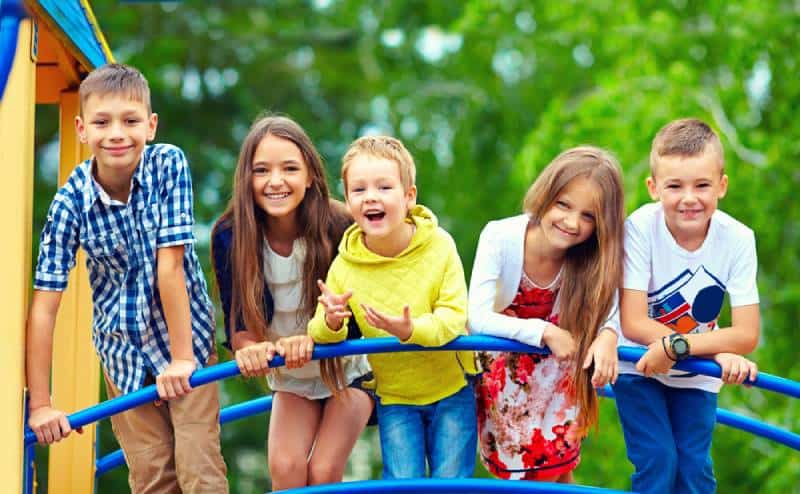
Plus, you don’t have to just linger around the house doing housework.
Some stay at home mothers, like me, end up finding hobbies or work online so they can stay at home with their kids and earn an income for the household.
This way we get to feel like we’re contributing to easing the burden of household expenses again, allowing us to feel accomplished.
When school starts though, it’s a whole different topic of discussion.
Sure, home schooling is a thing, but it’s a tough cookie to digest since it will require a lot of effort on the parents part.
This is something that will strip a whole lot of time away from them and leave them dissatisfied more often than not. Leaving it to professional educators is the right call.
And not only that, the child is in a period where they will start craving social interaction a whole lot more and school is the best place to sate this hunger and a good place for them to start building their social circle on top of getting educated about the world.
This part isn’t really a question between these two parenting styles, but rather the preferred path the parents are willing to take their child on.
Don’t get me wrong, the way parents raise their kids will still be reflected in their behavior at school and might get them into trouble or leave them sheltered and forming a social buffer rather than a social circle.

That, or their school performance might end up being poor if the parents slid into the pitfall of the extremes of parenting and ended up becoming too permissive or too uninvolved, leading to a lot of parent-teacher conferences.
Every parent dreads that call or the envelope where they’re called to discuss something bad their child might have done while at school.
Especially since their mistakes or misguided ways will come to light by a trained professional as they question their methods of parenting.
I’m not saying that it’s bad for someone to give you parenting tips and advice, but finding that out at this age instead of earlier tends to come as a rather big shock for most of us, especially if the child ends up being the class bully.
It means that there was either too much discipline or simply not enough and it’s up to the parents to sit and reflect on their methods and consult with other parents or a parenting expert to get more input and change their parenting style accordingly.
Hopefully it will lead them to fix their mistakes in the process and change their child’s upbringing for the better.
Teenage years (12-18)
This is where things start getting hectic for both the old and modern styles of parenting.
When puberty hits, your son or daughter tend to start craving their individuality, seeking what makes them them, and generally wanting to try a lot of new things out – good and bad.
It’s a parents duty to guide their kids in making the right decision along this journey of theirs.
Old parenting style
Now, what old-fashioned parents tend to do in this case is stick to the tried and tested grounding method and dictate specifically what they are and aren’t allowed to do.
Remember, in this form of parenting, the parents have set themselves up as the person who knows best for their child and will not let the so-called “experimentation” phase commence.
Instead, the parents rely on their own knowledge to tell their kids right from wrong, even though times have changed since they were at this stage.
This, in turn, leads to a lot of arguing within the household – some healthy, some less so – while making the child feel miserable, potentially further reducing their self-esteem since they’re not allowed to be themselves.

No child wants to be some off-brand copy of their parents, they want to be unique in every sense of the word. That’s the one constant that never changes with time.
Depending on the type of parent, things may not be too bad, but, more often than not, it will lead to the child detesting their parents and acting out in potentially dangerous ways just to get noticed.
It’s a teenage tantrum, with consequences that may end up being a lot worse than when they were a toddler.
The one thing old-fashioned parents realize during these years is that they might not have as strong of a hold on their kids as they once did and there is little they can do about it unless they beat their self-esteem into the ground – but would you really call it parenting at that point?
Modern parenting
Now, modern parenting doesn’t make it any easier, since this is a period where it’s tough to communicate with your teens even if everything so far has seemed neat and tidy.
The fact is that there’s a lot of peer pressure during the teenage years and often it’s not cool to hang with your parents.
Don’t get me wrong, they’re still looking for your input and approval, they just won’t show it openly.
When modern parents have to approach their kids, they make sure it’s at their home, not in front of their friends because they understand their child needs some alone time.
Some don’t, of course, which tends to be annoying for the teen and ends up creating an even larger gap when their parents don’t know how to behave in front of younger people.

In any case, the modern parent will sit down with their child and ask them about their day and if anything is troubling them.
They will need to be persistent, as their kids will not open up to them as they did before as a lot of the topics that they want to discuss are a bit sensitive to discuss with anyone.
Remember, this is a period where they’re exploring so things can end up being very confusing for them and they might come to the wrong conclusion if they just ask around.
They trust their parents most of all as they’ve been there for them most of their lives, although whether they like them or not is up to the kids.
In any case, in modern parenting it’s common for the parent to be patient and understanding, drawing lines from their past and how it was for them as a teen and trying to adapt to teenage life today.
Bullying
Another facet that’s sadly growing to be a rather common part of childhood is bullying, something I touched on in the early childhood parts, but feel the need to expand upon here.
This is because the teenage years are the period where bullying hits a high point.
High school in the United States can be hell for some students, especially the more introverted ones, the ones who have low self-esteem, or the ones who don’t follow the latest trends.
Bullying is the leading cause of depression in younger kids – and could potentially lead to worse complications, to put it lightly.
And it’s not just the other kids who are the bullies, teachers are prone to bullying their students whether they’re aware of it or not.
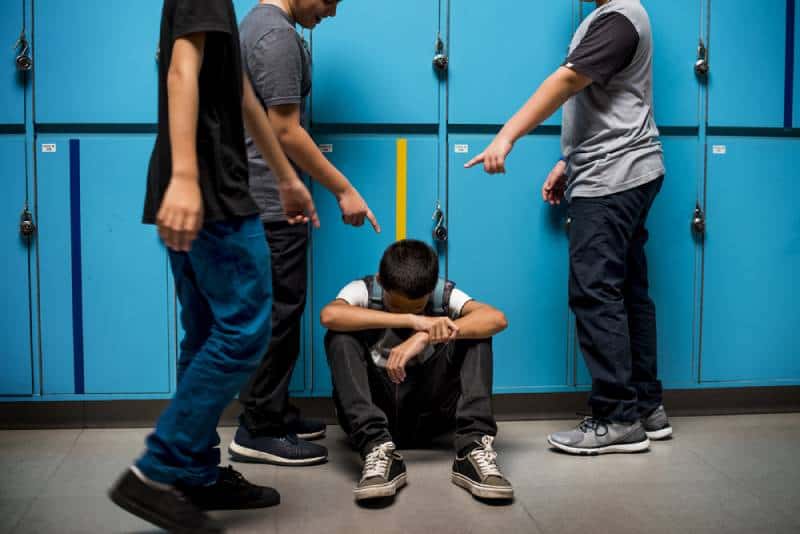
This only tends to lead kids into further isolation from the rest of their peers and is a very difficult problem to overcome.
A lot of the bullies aren’t bothered by the consequences since it doesn’t concern them, although if they ended up on the same road, they wouldn’t feel as comfortable about it.
In any case, the reason why it’s tough is that fighting fire with fire will only lead to a vicious cycle of bullying – not really solving the problem, just transferring it over to someone else.
And again, you don’t want your child being branded a bully either – it’s not a pleasant thing to live with.
Dealing with it silently also isn’t the solution and the best thing that the teen can do is stand up for themselves in a manner that skirts between the other two options.
The first option is to report the incident to a higher authority (this includes their parents) and let them issue the proper disciplinary measures.
The second option is simply not giving the bully any attention, which is often the reason why the bullying begins in the first place.
This is the way modern parents deal with it and the first method should be taught to all kids in case they witness bullying.
Instead of trying to fight the bully, they should just report it to a higher authority and provide comfort to the bullied person, so they know they have a friend.
Now, old fashioned parents on the other hand come from a household that has a rather crude way of “dealing” with this that, unfortunately, has a very low success rate of doing much of anything.

The most common thing you’ll hear them say when their teenage son or daughter says they’re being bullied is to “bully them right back” or to “man up”, regardless of their kids’ gender.
Now, this might have worked before, but we live in a modern society where children have a much more developed emotional spectrum and they’re more prone to taking things poorly.
This is why modern parenting evolved into what it is in the first place, so the child can have a friend in their parent and someone they can confide in while enjoying their childhood.
Parenting should not be a military boot camp, it should be a place of guidance and advice instead.
I realize I may be getting a bit personal here, but the fact of the matter is that I used to be a teacher and it always broke my heart to see a child coming in sad, uncomfortable, or even crying in school.
I just could not understand why some of them were treated the way they were.
Young adults/Adults (19 and onward)
The final stage of parenthood comes when your kids finish high school and become young adults, ready to take on the responsibilities of adult life, have a career, and live their dreams.
Maybe even start their own family so they too can become parents if that’s something they want.
But first, they have other hurdles to cross.
Many of them will stay the same as many problems do, maybe evolving in complexity, but still the same.
And now that they’re a bit more mature, they’ll have a better understanding of these problems and a better capacity to deal with them without the need to ask someone else for advice.
They will still need guidance, mind you. It’s human nature to be curious about things you don’t know and they’ll look it up where they find it appropriate, so don’t feel too bad if you’re not their first go to anymore.
Their circle of friends might have evolved to the point that it houses professionals in a given field, people who will undoubtedly know more about certain aspects of life than their parents.

It’s just them wanting more than one opinion so they can come to their own informed conclusions rather than relying on others to think for them.
They’re becoming independent and one should be ready to accept this change. They’re not little kids anymore.
There isn’t much difference here between the old way of parenting and the modern parenting style.
Both types of parents will still be there for their kids, though the relationship that was built up to this point may vary greatly based on how it was in the past.
Modern parents tend to have a healthier relationship with their kids than old-fashioned ones do.
Sure, kids will still love their parents, but it can either be the healthy sort of love, or the unhealthy codependent relationship because they felt too pressured while growing up.
Things To Consider
Phew, who would’ve thought there was so much to go through when looking at parenting, but it is something that lasts a lifetime (your child’s life anyway).
If you’re still having trouble figuring out whether modern parenting is the right way to go, or if you’re having problems figuring out how to go about certain things, here are a few tips to take from all of this.
1. Look back on your past
If you’re having trouble figuring out what to do in a certain situation, my most solid piece of advice is to always try remembering how you were raised as a child and which approach worked for you and which didn’t.
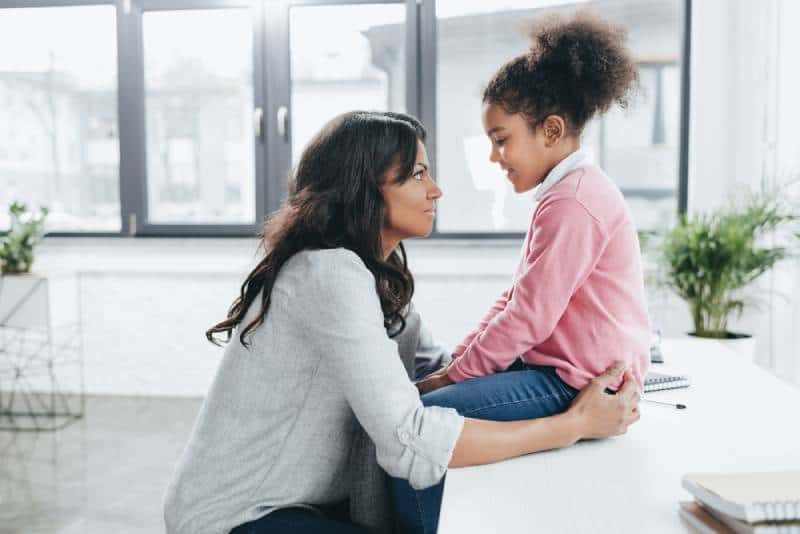
Chances are that your child will react in a similar manner to you or your partner, thus potentially making it the best solution to the problem at hand.
Do consult with your partner as well since you might have been raised differently, and who knows whose genes the child inherited.
2. You’re not alone
A child usually has two parents around and you’re not the sole parent in charge.
If you and your partner have a healthy relationship, you should both have an equal say in the matter and you should always consult one another before making any drastic decisions that will affect your kids.
3. Don’t make decisions for your kids
Not the arbitrary ones at least.
By this I mean, no unnecessary extracurricular activities that they don’t want to participate in and no planning a trip that they might not even enjoy without their input.
All you’re doing is making them miserable or wasting money on something they will be forced to like just to appease you.
Again, kids may carry their parents’ genes, but they’re not them and if the parents liked dancing it doesn’t mean that their kids will too.
4. Let them have a say in the matter
When they get old enough to properly converse with you and voice their opinion, don’t stifle them, let them speak.

The best piece of advice you can get on governing your own child is from the child itself.
They know what they like and don’t like. While you might push for some specific things – like when you need to get them out of their comfort zone – you don’t have to do it all the time and you should respect their boundaries as best you can.
In Conclusion
From this sizable writeup you can see that today’s parents lean to one of two definitive ways of parenting their kids – usually depending on how they were raised.
While modern parenting might look like the clear winner in a vacuum, it’s a lot easier to dip into an extreme within it since you loosen the hold you have on your child.
While this is healthier in the long run, a level of discipline is still required as kids still need to be taught about responsibility and that their actions have consequences – some of them lasting.
This is why, despite being biased against old-fashioned parenting, in part because I was raised on it and it wasn’t always pleasant, I recognize it also still helped me learn many life skills.
It helped me be more organized and prepared me for the harsher periods of my life.
It steeled my resolve. But again, that was me, that was twenty to thirty odd years ago. Times change and I don’t think that way can work anymore, personally.
One thing is for certain though, this is just my personal opinion and there is really no right way on how to raise your own child.
There are guidelines, sure, but every child is unique and requires a unique parenting approach.
Kids aren’t some ready-made products that are sprung from a mold, nor do they come with a manual. They’re our kids and if anyone is going to figure out how to raise them, it’s their own parents.
I hope all of this has helped give you some insight and clarity into what goes on through a child’s life cycle within modern parenting, and the potential pitfalls one can get into when practicing it.
I myself haven’t reached a few of these stages yet as my oldest is 7, nearing 8 but I’m hoping it’s not as bad as other parents make it out to be.
Until next time, mamas, happy parenting.
Like this post? Please share or pin it for later. You can also stay in the loop and follow us on Facebook, Instagram or Pinterest.
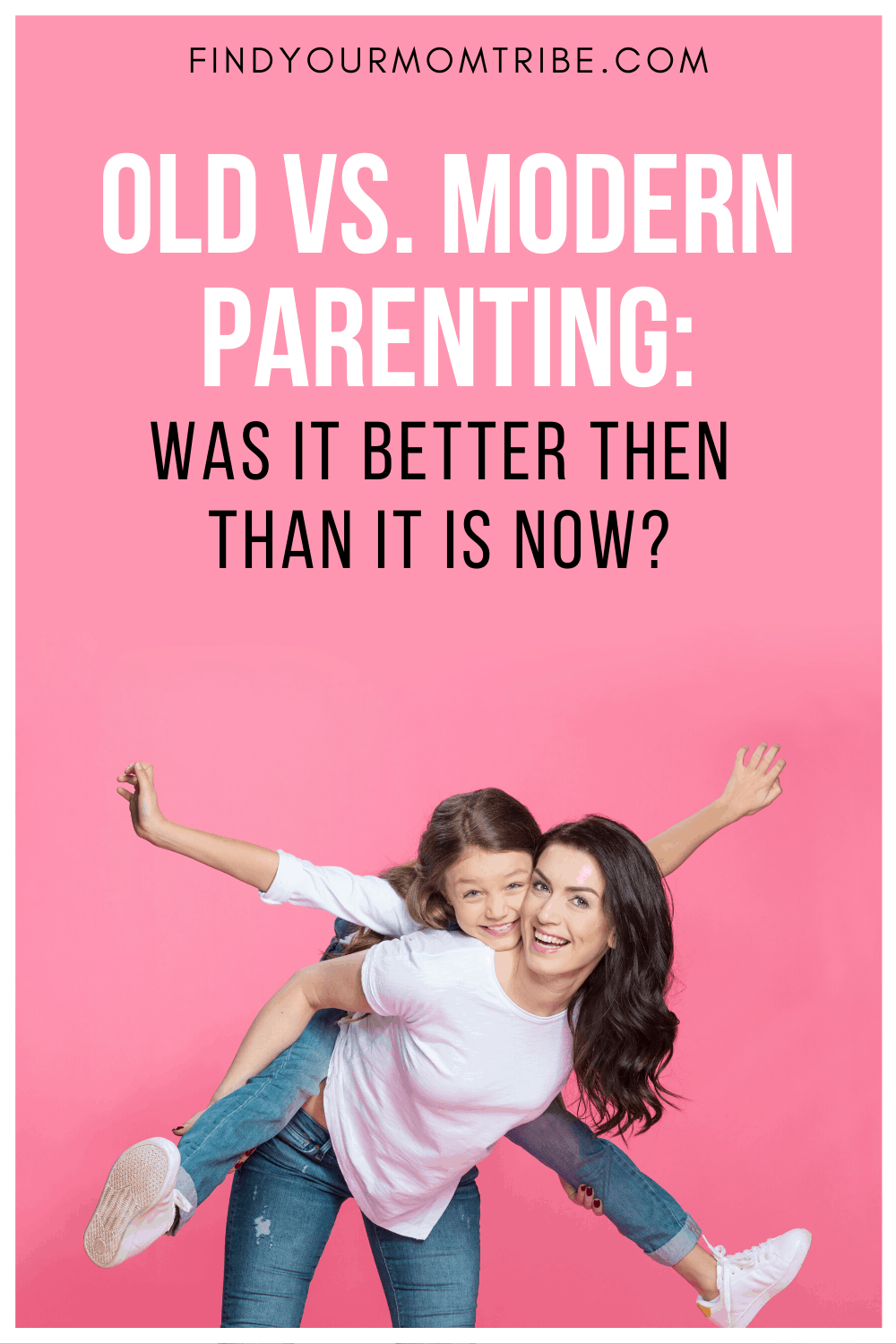
This post contains affiliate links. Please see our full disclosure for more info.

